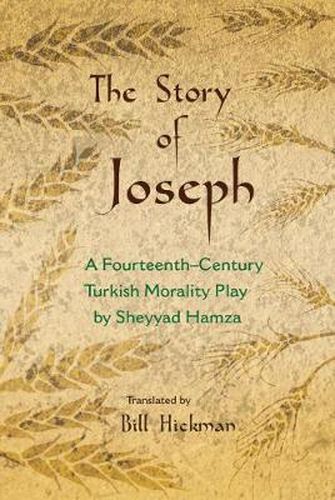Readings Newsletter
Become a Readings Member to make your shopping experience even easier.
Sign in or sign up for free!
You’re not far away from qualifying for FREE standard shipping within Australia
You’ve qualified for FREE standard shipping within Australia
The cart is loading…






At the heart of this volume is the translation of a fourteenth-century Turkish version of the Joseph story, better known to Western readers from the version in Genesis, first book of the Hebrew Bible. Hickman provides us with a new lens: we see the drama of the Old Testament prophet Joseph, son of Jacob, through Muslim eyes. The poem’s author, Sheyyad Hamza, lived in Anatolia during the early days of the Ottoman Empire. Hamza’s composition is rooted in the recondite and little-studied tradition of oral performance-a unique corner of Turkish verbal arts, situated between minstrelsy and the
divan
tradition-combining the roles of preacher and storyteller. A cultural document as well as a literary text that reflects the prevailing values of the time, Hamza’s play reveals a picture of Ottoman sensibility, both aesthetic and religious, at the level of popular culture in premodern Turkey. To supplement and contextualise the story, Hickman includes an introduction, a historical-literary afterword, and notes to the translation, all ably assisting an unfamiliar reader’s entry into this world.
$9.00 standard shipping within Australia
FREE standard shipping within Australia for orders over $100.00
Express & International shipping calculated at checkout
At the heart of this volume is the translation of a fourteenth-century Turkish version of the Joseph story, better known to Western readers from the version in Genesis, first book of the Hebrew Bible. Hickman provides us with a new lens: we see the drama of the Old Testament prophet Joseph, son of Jacob, through Muslim eyes. The poem’s author, Sheyyad Hamza, lived in Anatolia during the early days of the Ottoman Empire. Hamza’s composition is rooted in the recondite and little-studied tradition of oral performance-a unique corner of Turkish verbal arts, situated between minstrelsy and the
divan
tradition-combining the roles of preacher and storyteller. A cultural document as well as a literary text that reflects the prevailing values of the time, Hamza’s play reveals a picture of Ottoman sensibility, both aesthetic and religious, at the level of popular culture in premodern Turkey. To supplement and contextualise the story, Hickman includes an introduction, a historical-literary afterword, and notes to the translation, all ably assisting an unfamiliar reader’s entry into this world.